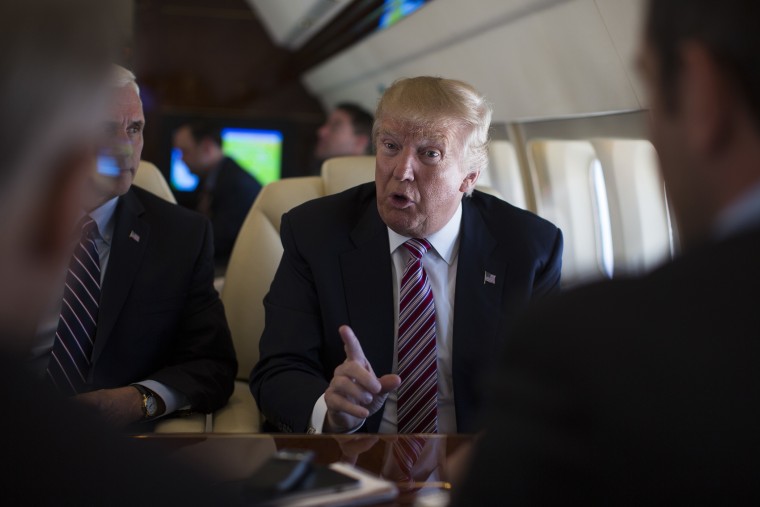Just when it seemed the controversy surrounding the Donald J. Trump Foundation couldn't get any worse, the
Washington Post's David Fahrenthold
published new revelations this morning that, if true, suggest serious wrongdoing.
Donald Trump spent more than a quarter-million dollars from his charitable foundation to settle lawsuits that involved the billionaire's for-profit businesses, according to interviews and a review of legal documents.Those cases, which together used $258,000 from Trump's charity, were among four newly documented expenditures in which Trump may have violated laws against "self-dealing" -- which prohibit nonprofit leaders from using charity money to benefit themselves or their businesses.
This is hardly the first controversy surrounding Trump's charitable foundation, but it may be the most damaging for one straightforward reason: it doesn't require a lot of explanation. As Josh Barro
put it, the summary fits in a sentence: "Donald Trump took money other people gave his charity and used it to pay his businesses' fines."
Not to put too fine a point on this, but what's being described here sounds an awful lot like a slush fund.
The issue of "self-dealing" came up a bit last week, when we learned that Trump allegedly used foundation money to buy a giant portrait of himself, which was apparently then sent to one of Trump's golf resorts. As Fahrenthold
explained, "If Trump did not give the painting to a charity -- or find a way to use it for charitable purposes -- he may have violated IRS rules against 'self-dealing,' which prohibit nonprofit leaders from spending charity money on themselves."
But today's story takes the issue quite a bit further, raising the possibility that Trump routinely used foundation money -- funds that often came from other people, intended for charitable purposes -- to pay off settlements when his business enterprises faced lawsuits.
The obvious question, of course, is whether or not it was legal for Trump to use charitable money to pay off legal settlements from for-profit businesses. The Post's report said Trump's alleged practices "may have violated U.S. tax law and gone against the moral conventions of philanthropy."
"I represent 700 nonprofits a year, and I've never encountered anything so brazen," said Jeffrey Tenenbaum, who advises charities at the Venable law firm in Washington. After The Post described the details of these Trump Foundation gifts, Tenenbaum described them as "really shocking.""If he's using other people's money -- run through his foundation -- to satisfy his personal obligations, then that's about as blatant an example of self-dealing [as] I've seen in a while," Tenenbaum said.
For much of the political media, there's a sense that the Clinton Foundation is a real controversy, despite the fact that there's no evidence of actual wrongdoing. As it turns out, it's her rival who has the real scandal.
